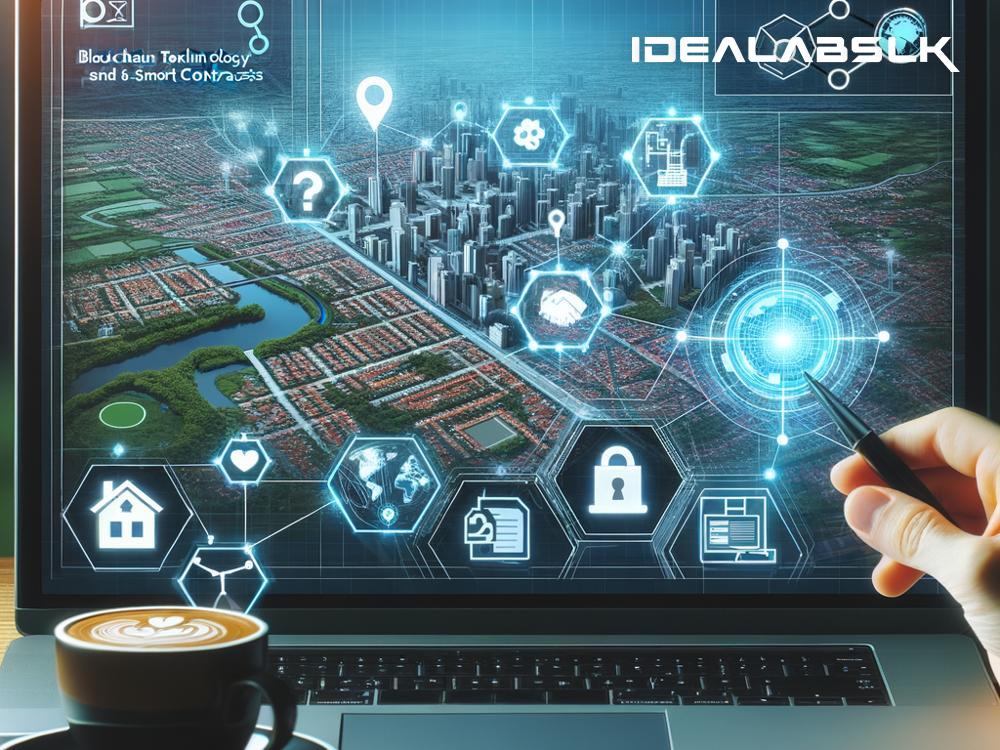Unlocking the Potential of Blockchain in Real Estate Rental Platforms
In the digital era, blockchain technology is not just a buzzword for the tech-savvy; it's a revolutionizing force across industries. One such sector that stands to gain immensely from blockchain innovation is real estate, particularly rental platforms. But what is blockchain, and how can it redefine the landscape of renting properties? Let's dive into this topic, breaking down complex concepts into simple, digestible information.
What is Blockchain?
Imagine a digital ledger that is completely secure, transparent, and operates across a network of computers. This ledger records transactions in a way that ensures once a transaction is recorded, it cannot be altered or deleted. That's the essence of blockchain technology. It's the backbone of cryptocurrencies like Bitcoin but has potential applications far beyond that, including in the world of real estate rentals.
Why Blockchain for Real Estate Rentals?
The current process of renting properties can be cumbersome, filled with paperwork, intermediaries, and a lack of transparency that often leads to mistrust and inefficiencies. Enter blockchain, and these issues could soon be a thing of the past. Here's how:
1. Decentralization and Security:
At its core, blockchain is decentralized, meaning it doesn't rely on a central point of control. This minimizes the risk of fraud and data tampering. In rental platforms, this would ensure that property listings and tenant records are secure and reliable.
2. Transparency:
Blockchain operates on a principle of complete transparency. Every transaction on the blockchain is visible to all parties involved, making the rental process more transparent. This could significantly reduce disputes and misunderstandings, as all actions are recorded and easily verifiable.
3. Smart Contracts:
Perhaps the most revolutionary aspect of blockchain for real estate rentals is the introduction of smart contracts. These are self-executing contracts with the terms of the agreement between landlord and tenant directly written into lines of code. Payments, deposits, and lease agreements can be automatically processed when certain conditions are met, cutting out the need for middlemen and making the process quicker and more cost-effective.
4. Tokenization:
Blockchain facilitates the tokenization of assets, including real estate. This means property or rent payments can be represented as digital tokens on the blockchain. It simplifies transactions, enables partial ownership, and even allows for more flexible leasing agreements.
5. Streamlining Processes:
With blockchain, the entire rental process, from applications to lease termination, can be handled more efficiently. Background checks, payment history, and property details can all be securely recorded and accessed on the blockchain, streamlining operations and reducing administrative overhead.
Real-World Applications and Future Prospects
Several startups and established companies are already exploring blockchain-based rental platforms. These platforms offer features like secure property listings, automated payments, and even crowd-funded real estate investments, signaling a future where renting is more accessible, secure, and efficient.
As technology advances, we can expect to see even more innovative applications of blockchain in real estate. This could include virtual walkthroughs of properties recorded on the blockchain or even global rental platforms without currency exchange issues, thanks to the universal nature of blockchain technology.
Potential Challenges
Despite its potential, widespread adoption of blockchain in real estate rentals faces challenges. These include the need for technological infrastructure, regulatory hurdles, and the task of convincing all stakeholders to trust and adopt this new system. However, as awareness grows and technology evolves, these barriers are likely to diminish.
Simplifying the Rental Experience
The integration of blockchain technology into real estate rental platforms promises a future where finding and leasing a property is as simple and straightforward as sending an email. The benefits—enhanced security, transparency, efficiency, and the potential for innovation—are significant, pointing towards a paradigm shift in how we think about renting property.
As we stand on the brink of this transformation, the journey of blockchain from a niche cryptocurrency technology to a mainstream tool for simplifying and securing transactions in real estate rentals is indeed a remarkable one. With continued development and adoption, the promise of blockchain to redefine the rental landscape is not just a possibility but an impending reality.
In simple terms, blockchain in real estate rentals could make the whole process safer, quicker, and a lot less complicated for everyone involved. It's an exciting time for tenants, landlords, and technology enthusiasts alike, as we witness the dawn of a new era in real estate, powered by blockchain.

